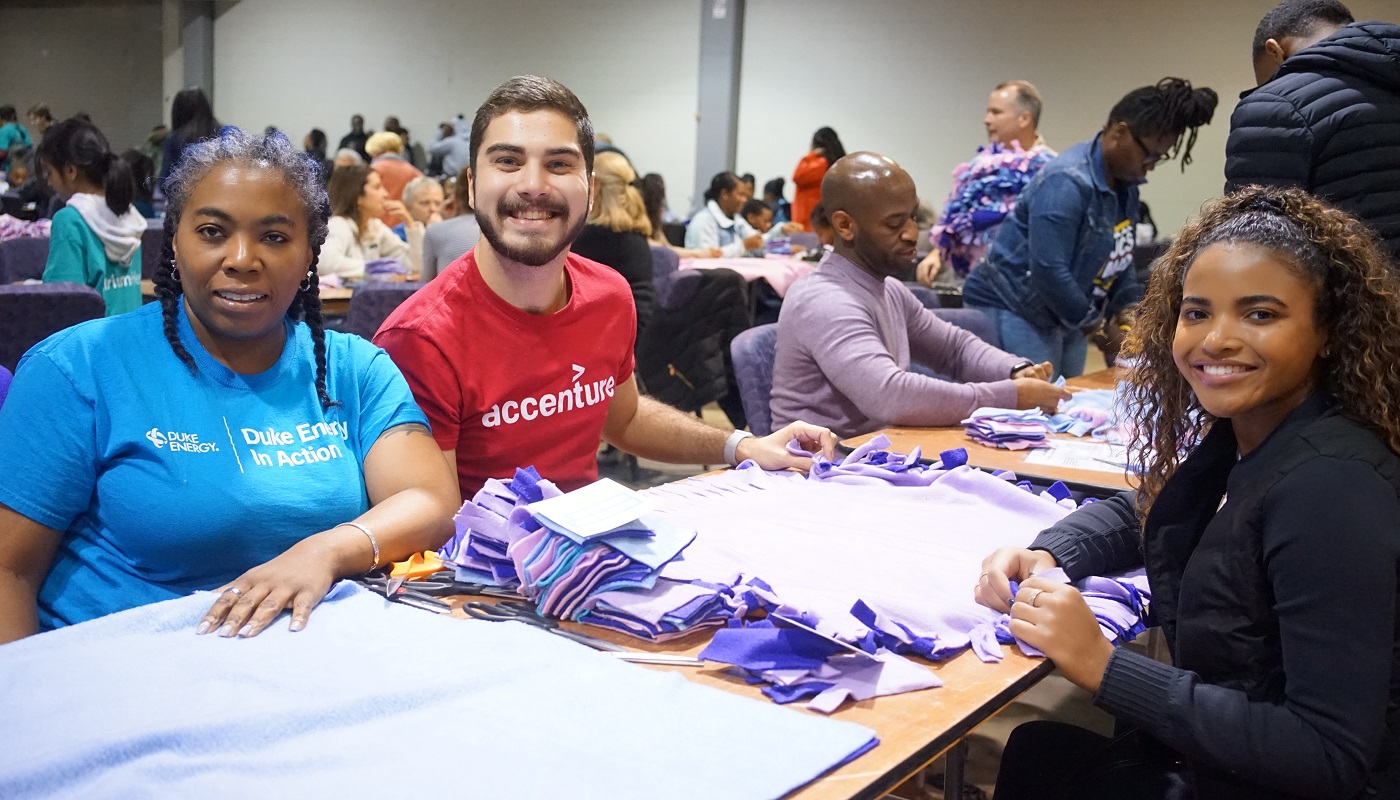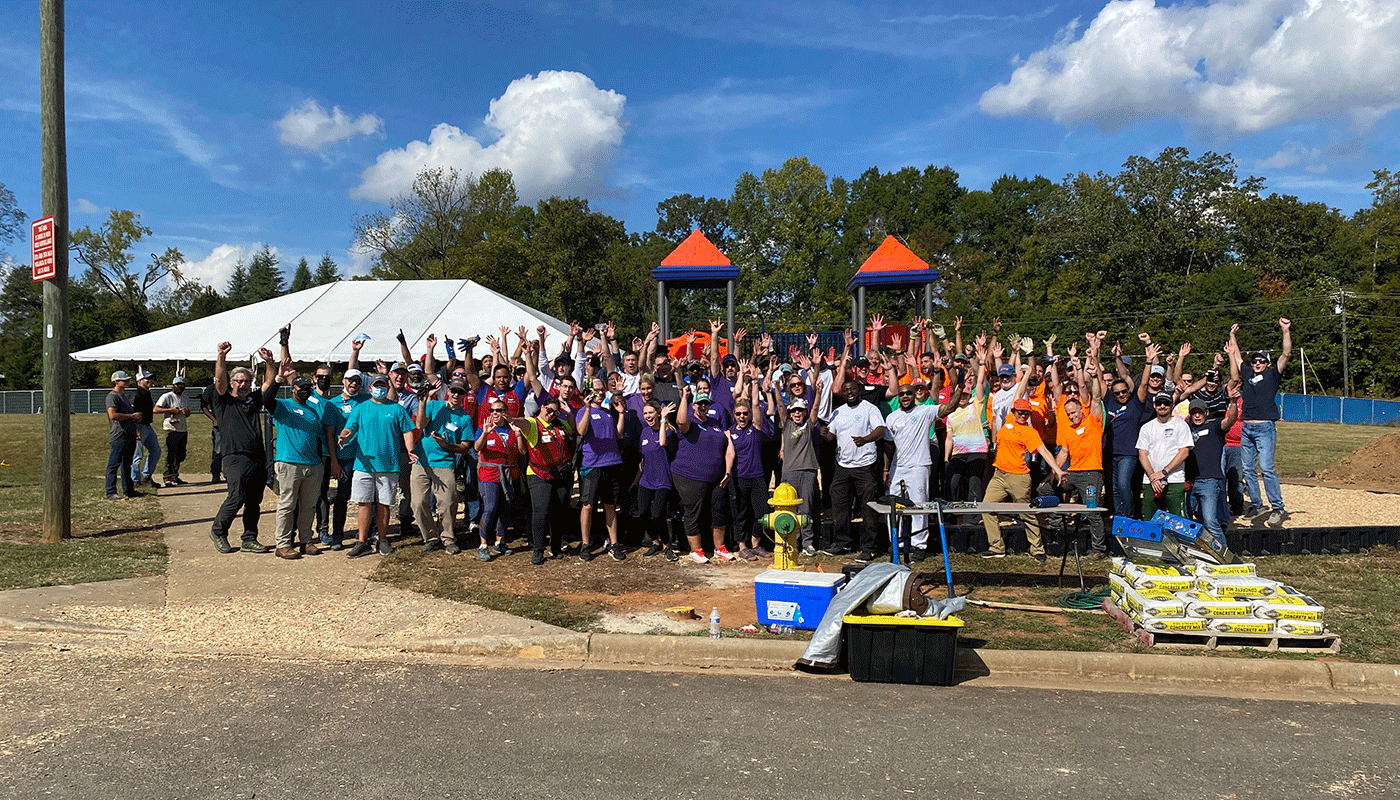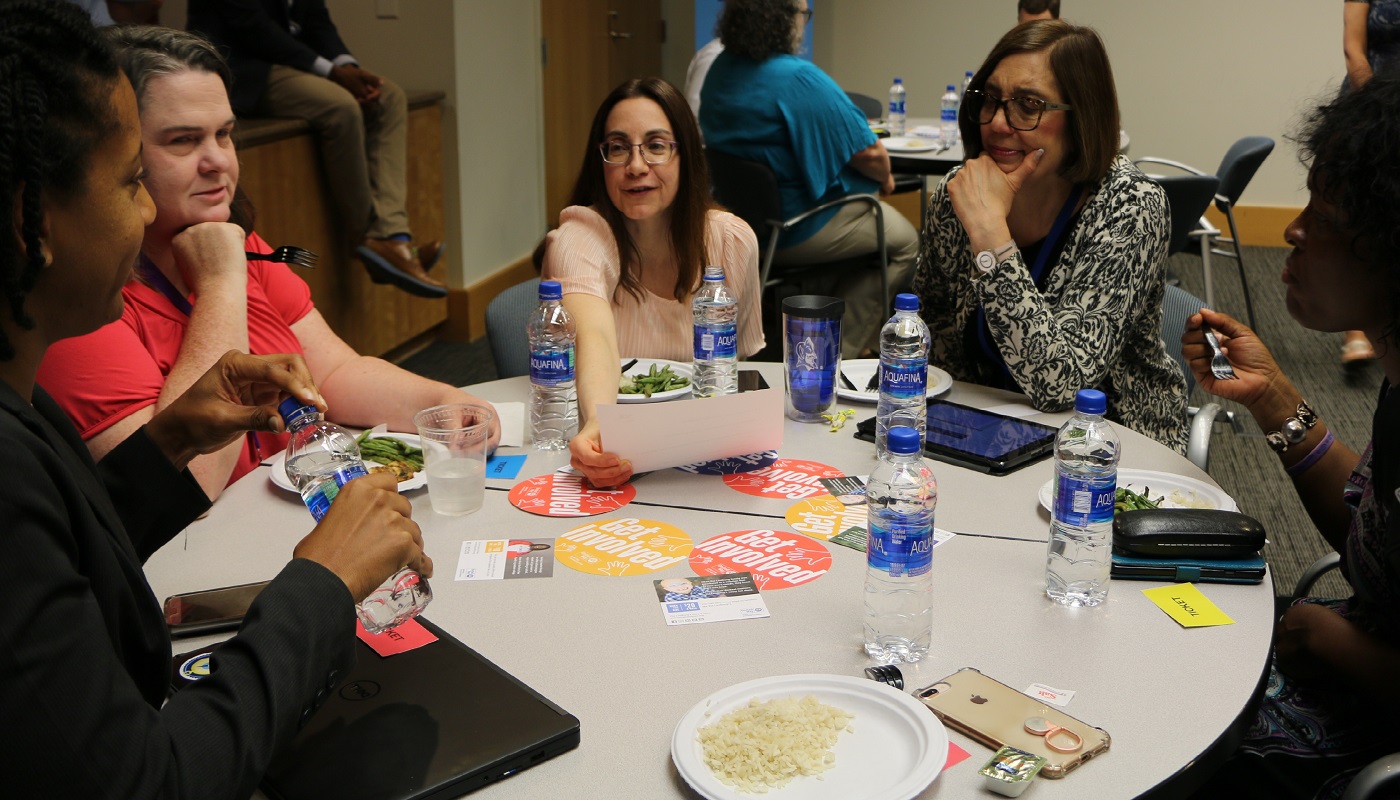
TIAA gives employees first-hand look at hunger
Food insecurity is something faced daily by many children living in Charlotte.
When children wake up hungry and go to bed hungry, they have a greater risk of weakening their educational outcomes and depriving their mental and physical health. Hunger is a symptom of various issues related to economic mobility that can keep families trapped in poverty.
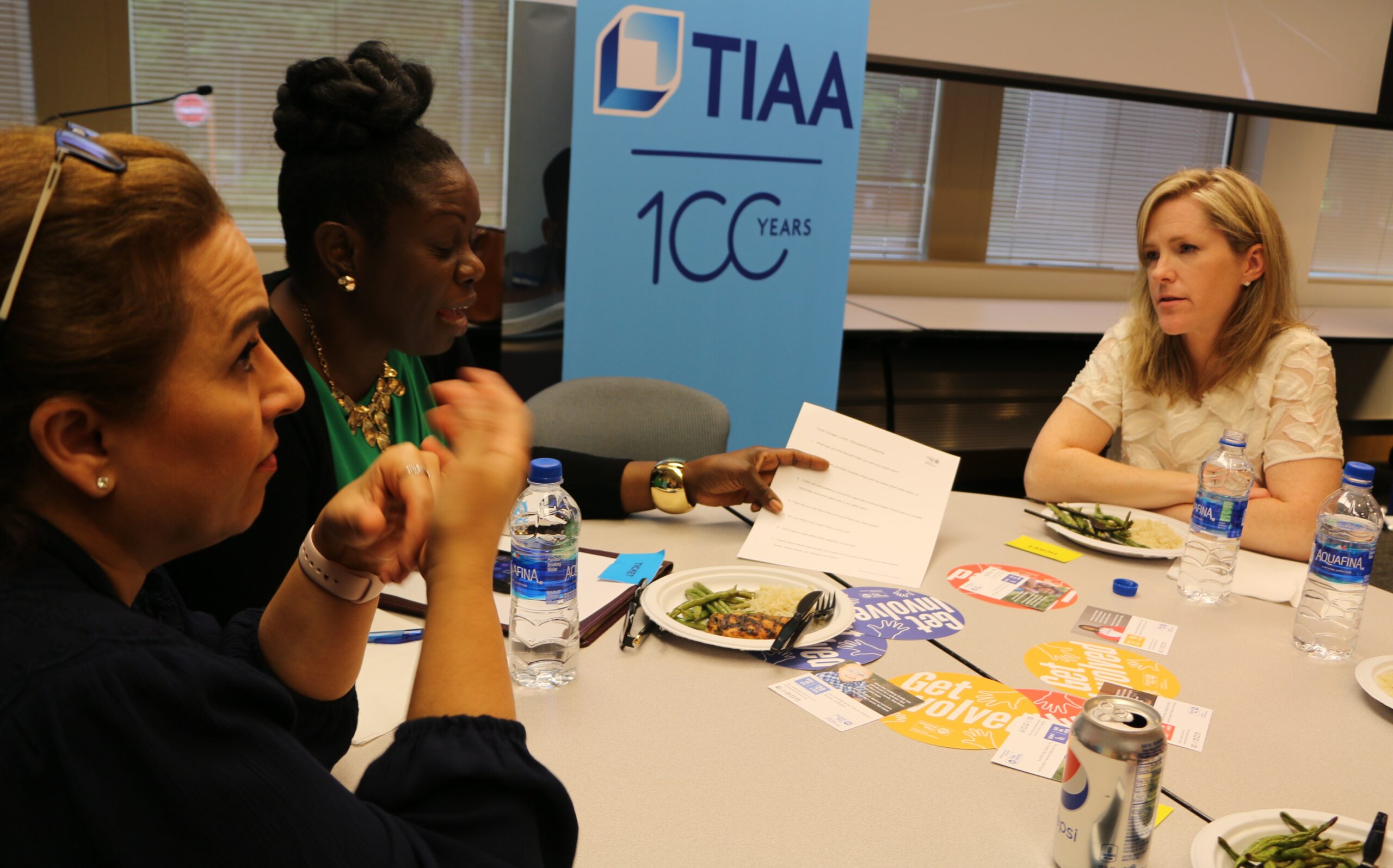
As part of its 100 Days of Difference campaign, TIAA held a Hunger Luncheon in May to educate employees and build awareness around poverty and food insecurity in Charlotte. Participants were randomly issued one of three tickets representing upper-, middle-, and lower-income classes. Seating was random with a mingling of all three income levels at each table. Depending on the type of ticket they received, participants got a full plate of food, two items, or just one item.
Eating and interacting with each other, participants experienced the reality of hunger and what it’s like for people who have high opportunity and access to adequate food, versus those who don’t. Joan Marius had an upper-class ticket and said her stomach hurt from anxiety because she felt uncomfortable eating her full meal in front of others at her table with less food.
“Not being exposed to such a diverse status like this was eye-opening. I don’t think I truly understood this until I was actually confronted by it,” Marius said. “This experience has changed my whole mindset. I think this (event) is something everyone should experience.”
Lisa Bradbury, who had a lower-class ticket and sat next to Marius, said the Hunger Luncheon also opened her eyes to being in an environment eating with a mixture of classes.
“We had a table that was mostly have-nots and it was uncomfortable to see the poverty,” Bradbury said. “And I think that unless you’re conscious about it you avoid that feeling.”
All participants later were invited to enjoy a full meal and learn more about local poverty from the event’s moderator Laura Clark, chief impact officer with United Way of Central Carolinas. Babies born into poverty today in Charlotte have a very low chance of getting out of poverty during their lifetime, Clark said.
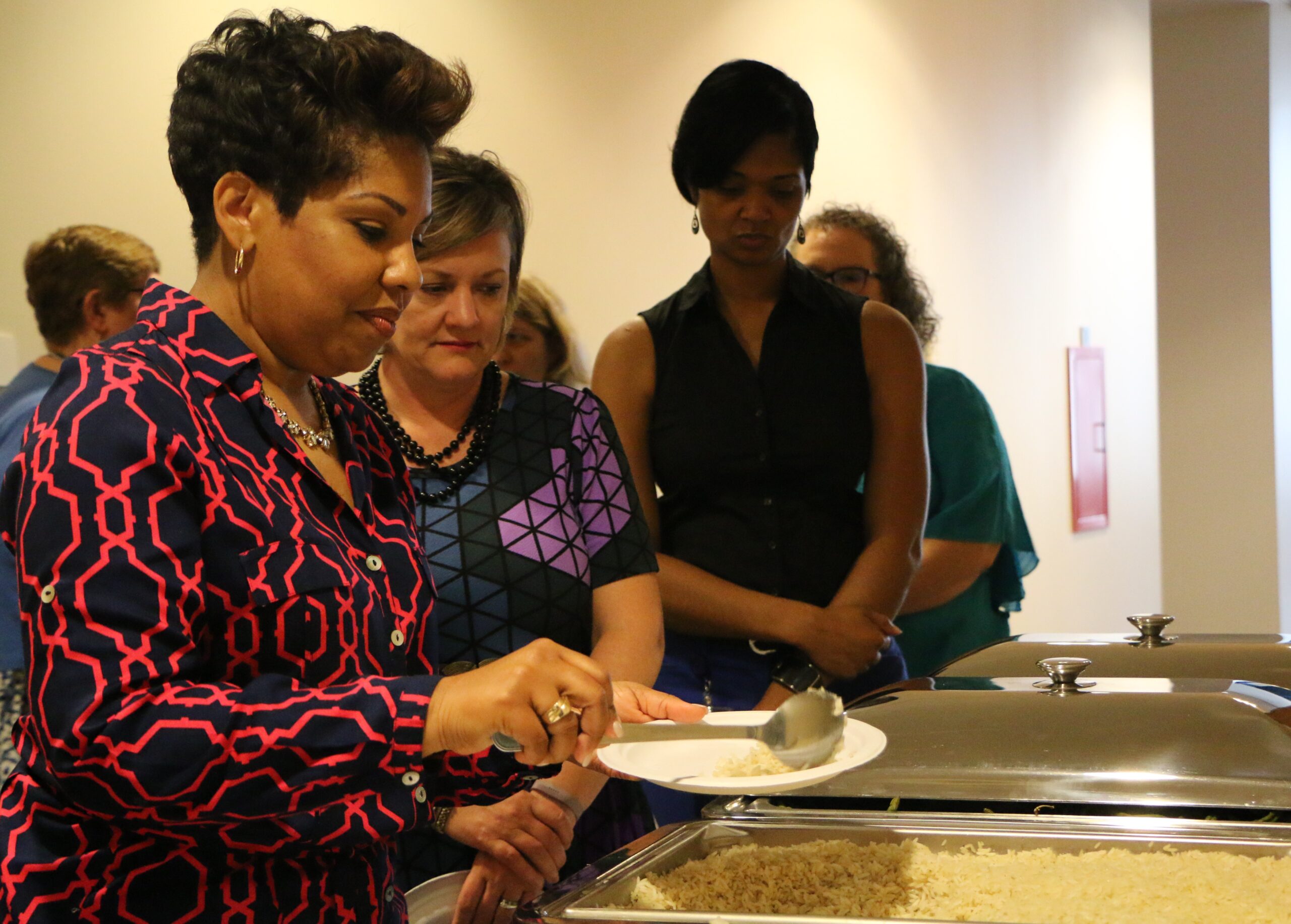
“We do need to make sure that children are fed today, but we need to be equally as committed to solving the issues that got them there to begin with,” she said. “So often we have families that are living in poverty that don’t advocate for themselves or know how to advocate for themselves.”
During the exercise several participants said they felt compelled to help ensure families and children most in need have access to enough food and other resources.
Clark said ways to get involved include having a presence and doing intentional work in struggling neighborhoods, having hard conversations about poverty, and exposing residents and future generations to these issues.
“It can become really easy to stay in our bubble of relative affluence because of the way our neighborhoods are created,” she said. “We have to be willing to engage in a relationship with people who are living in different circumstances than us.”
Interested in scheduling a Hunger Lunch for your team? Email info@handsoncharlotte.org to get started.


